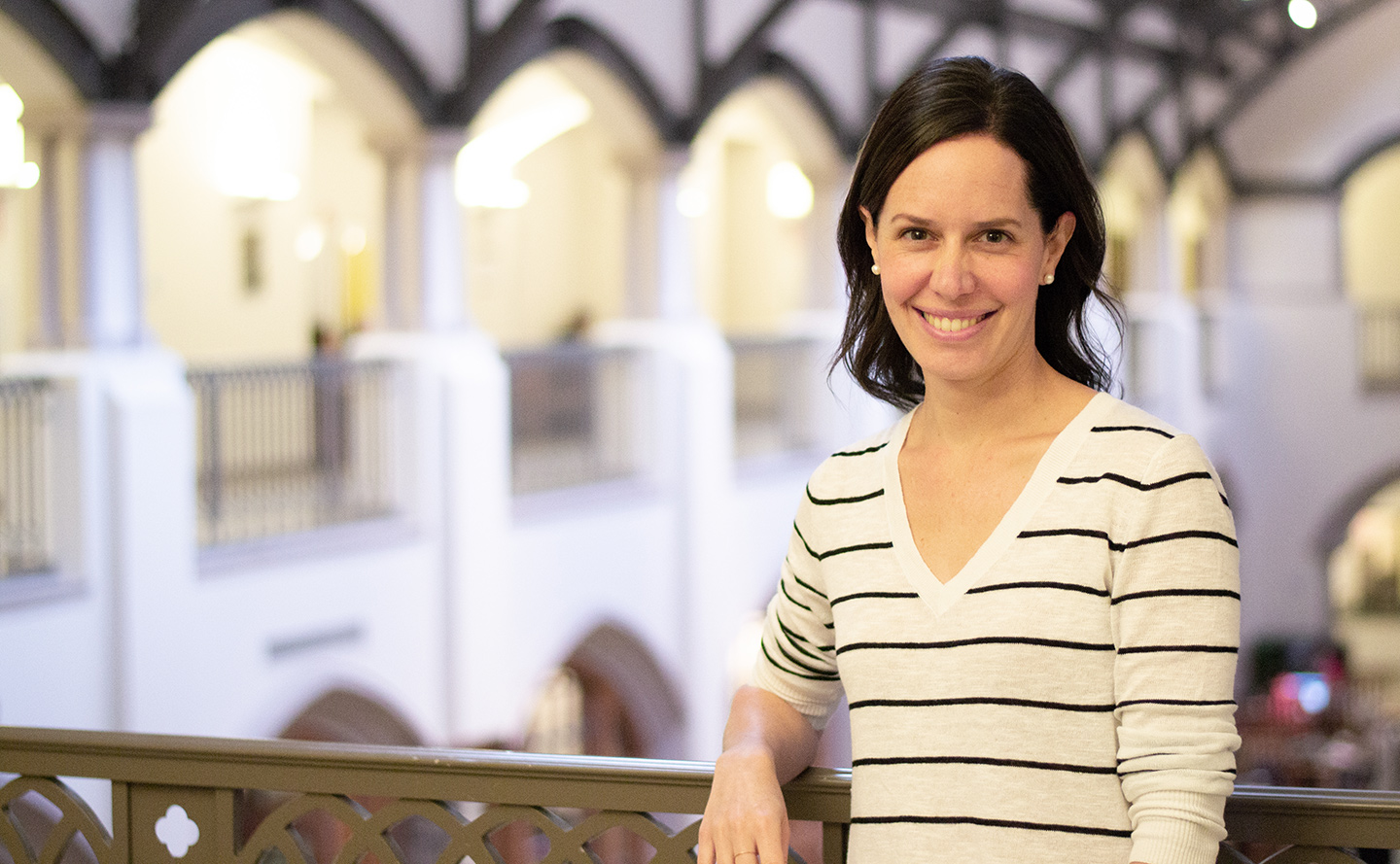Many families have unwittingly been taking part in a huge social experiment. They’ve invited conversational agents such as Siri and Alexa into their homes, but how do these new technologies affect children’s social development? The answer to that is one big “shrug” emoji.
Backed by a prestigious fellowship, the UW Information School’s Alexis Hiniker will spend the next few years investigating how the voices emanating from digital assistants affect children’s speech and well-being. Her goal is to learn how those who design such technologies can help create positive communication habits.
Hiniker, an iSchool assistant professor, recently received a $185,000, three-year award from the Jacobs Foundation Research Fellowship Program, which supports scholars from around the world whose work contributes to children’s development and living conditions. The Swiss foundation’s fellowships are highly competitive, with only 10-15 chosen from hundreds of applicants each year. The iSchool’s Jason Yip won a Jacobs Foundation fellowship in 2019.
Hiniker and students in her User Empowerment Lab are interested in whether technology that talks can present an opportunity for educational experiences that model good social habits, in the mold of TV shows aimed at preschoolers such as “Daniel Tiger’s Neighborhood” and its spiritual predecessor, “Mister Rogers’ Neighborhood.”
“It’s eye-opening to see children use any system in real life; what they do always reveals things we don’t expect.”
“We know that kids and all people pick up habits from the communication experiences that they have,” Hiniker said. “The intent is not to replace conversations with other people or teach kids to talk through the Echo, but to offer positive exchanges and try to help kids build, reinforce and practice the habits that families feel good about.”
Hiniker said the Jacobs Foundation’s approach is well-suited to her research. It funds researchers who bring a wide range of perspectives to their work, all with the goal of improving childhood development and helping young people become productive, socially responsible members of society.
“They build these fellowship cohorts from all different disciplines, which means you’re connecting with people who have more of a developmental perspective. I think it’s really that intersection of child development and design that we need to get this right, so I’m really excited,” she said.
Over the course of the fellowship, Hiniker and her research team will gather input from families and confer with child development experts to learn how interactions with digital assistants can best serve kids. Her plans include involving families in product design and testing new interactive experiences to ensure the digital assistants have a positive influence.
By the end of the fellowship, she hopes to have some clear guidance for product designers to produce developmentally sensitive conversational technologies for children. She’d also like to have some answers for parents who are wondering whether they need to worry about what their kids are learning from Siri or Alexa.
“I hope that by the end I have a really clear sense of what design can do here, both for better and for worse,” she said.
The fellowship will provide funding for a Ph.D. student and other student researchers in Hiniker’s lab. She also has young children at home who serve as unpaid research assistants, giving her first-hand knowledge of how kids interact with technology.
“It’s really fun to see it play out in front of me, and it’s definitely useful for making it all concrete,” she said. “It’s eye-opening to see children use any system in real life; what they do always reveals things we don’t expect.”
Pictured at top: Alexis Hinker at Mary Gates Hall in 2019.
